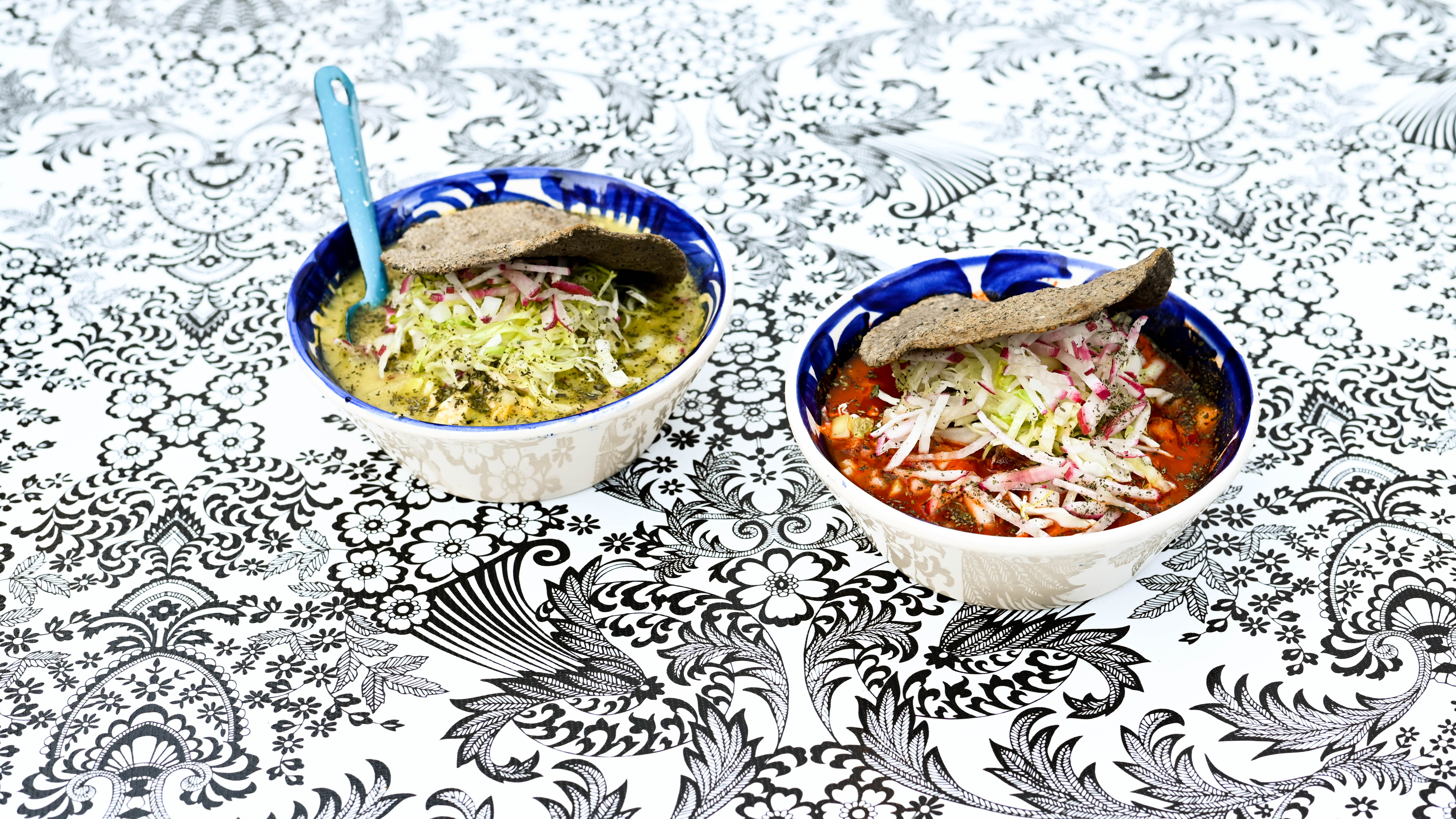For anyone paying attention to what chef Jose Avila has been up to for the past year, the notion that he’s just now opened a pozoleria in the heart of downtown is big news. On Friday, June 11, Avila — who has been working in Denver kitchens for over 20 years — quietly debuted La Diabla Pozole y Mezcal in hopes of letting the excitement around the space build naturally as he and his small team introduced a delightful menu of pozole, appetizers, tacos, costras, quesadillas and agave-forward cocktails. The cat may now be out of the bag, with the growing and evolving menu reflecting a chef who, since 2019 alone, has introduced three entirely different projects — each its own impressive and distinct celebration of a different regional style of Mexican cuisine.
Avila began his culinary career roughly two decades ago as a dishwasher for a now-closed burrito shop in Cherry Creek. He worked various roles in many of the neighborhood’s kitchens before spending the better part of the mid-2000s as the executive chef for Elway’s. He then helped to open three successful taco locations across the city. But in 2019, it would appear that he really began to let his hair down, introducing successive projects that covered a range of dishes from Yucatan, Hidalgo and now Mexico City, where he’s originally from. Each concept is quite different, bound only by the chef’s thoroughly unapologetic approach.
Peeking into the kitchen at La Diabla, customers are sure to catch a glimpse of a decorative skull or two and if they are there on the right day, Avila may be present with the freshly-butchered face of one of his own ranch-raised pigs, lending the place a definite edge. Avila raises both sheep for El Borrego Negro — his weekly Hidalgo-style barbacoa and consomé project in Westwood — and pigs for La Diabla, all of which he hand-carves for fresh consumption. X’tabai Yuacateco — a food truck that specializes in cochinita pibil, relleno negro and cecina served in either tacos, costras, panuchos, pambazos or chilaquiles — might not be quite as overtly metal as his more recent excursions, but it’s still a good indication that the man is on a mission. He’s finally doing cuisine his way, and the city is lucky to have it.
To understand the full depth of La Diabla’s importance, it’s probably good to have some understanding of El Borrego Negro. The project began during COVID when Avila began spending more time at Re:Vision— an urban farm and commissary in the heart of Westwood that has been acting as a community staple in conjunction with the neighboring Rise Westwood Collective. Inspired by the neighborhood, he set out to construct his own hoyo — an underground cooking system that relies on heated rocks, over which he prepares an overnight concoction of tender maguey-wrapped barbacoa buried atop a broth prepared with sheep bones from his own stock. The project has quickly become a sensation, usually selling out the night before, with groggy but excited customers showing up each Sunday well before 10 a.m. For anyone who hasn’t checked it out, now may be the time to do so.
Hoyo-style cooking is uncommon in Denver, to say the least. La Diabla is cut from a similar cloth, with Avila taking charge of each point of the production to make sure that the ingredients meet the standard of a proper pozole — each expressing its own powerful flavor while still harmonizing towards a unified whole.
“Avila and his team nixtamalize all the corn by hand, a very labor-intensive process, which allows the corn to hold more freshness and flavor in each bite. He is also is bringing in three styles of corn from Mexico to provide a different hominy in each broth,” said general manager Cristina Farmer. Pozole ($17) comes in three expressions — verde with maiz rojo, blanco with maiz azul and rojo with maiz blanco. Customers can then choose from chicken or cabeza de cerdo — pig’s head. It’s then served with lettuce, cabbage, radish, onions, lime and a crispy house-made tostada. All together, the dish now ranks as one of the city’s heartiest soups, a dense expression of cuisine produced with tremendous levels of care and tact. The team also plans to rotate protein options for quesadillas, costras and tacos weekly — giving the place a certain whimsical brashness befitting the name and interior.
Continuing the general trend of harmony is bar manager Ivan Ramirez, who originally met Avila over a decade ago while working at Elway’s. He’s since done volume bartending in Cancun and Playa del Carmen, before cutting his teeth at a series of Kimpton Hotels in Miami. Since returning to Denver, he’s worked at both Linger and El Five. At La Diabla, he’s stocked the bar with 15 mezcals, four raicillas, five sotols, a bacanora and close to 10 tequilas. His original cocktails are an essential component of any visit, with drinks like the Mambo Lupita ($13) — with Derrumbes San Luis Potosi, The Family Jones Gin, aloe, citrus and cava — being adorned by edible paper, spritzed with mezcal, featuring printed sections of the titular song’s lyrics.
“Avila also is someone who sticks to the concept he wants to create and never strays from his path to satisfy an idea of what people think Mexican food should be,” added Farmer. So far, his boldness is more than paying off.
La Diabla Pozole y Mezcal is located at 2233 Larimer St., Denver. It is open Monday from 3 – 9 p.m., Tuesday – Thursday from 11 a.m. – 9 p.m., Friday and Saturday from 10 a.m. – 12 a.m., and Sunday from 10 a.m. – 10 p.m.
All photography by Kori Hazel.





